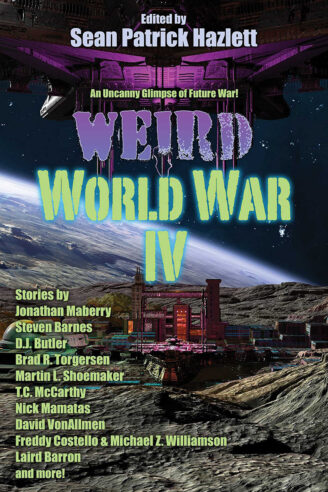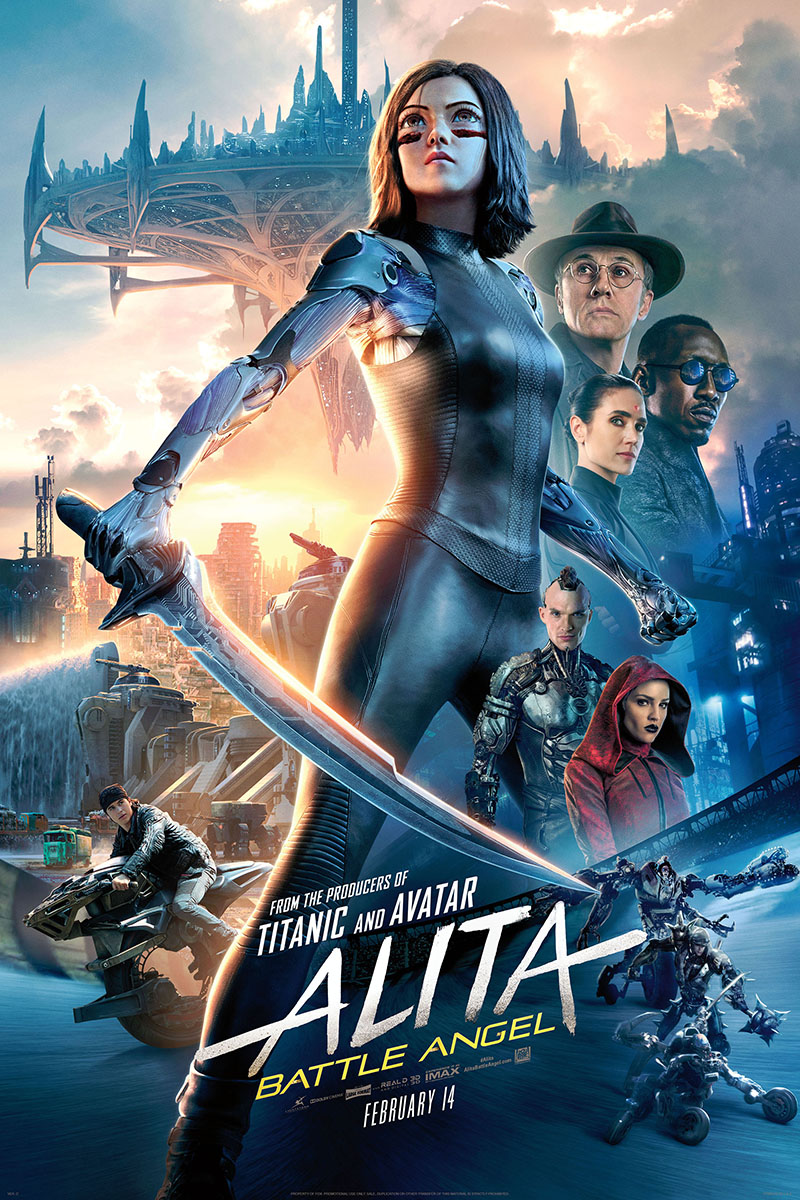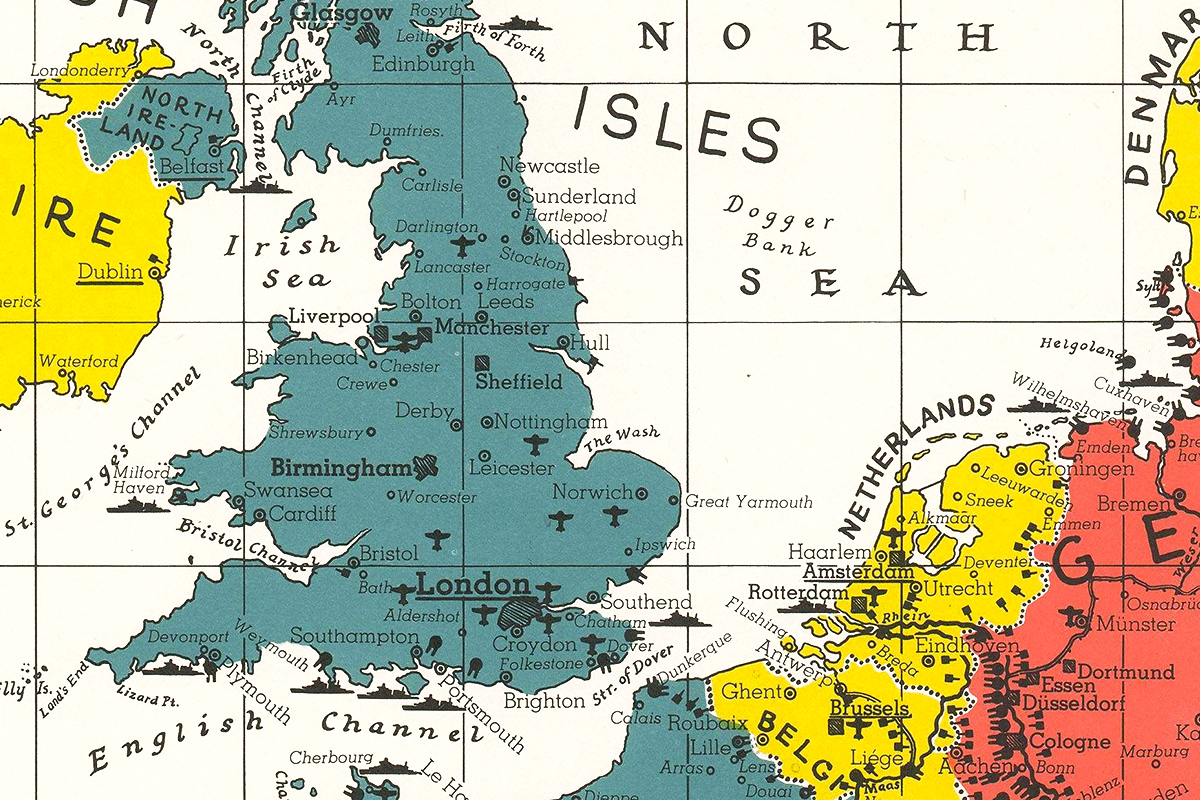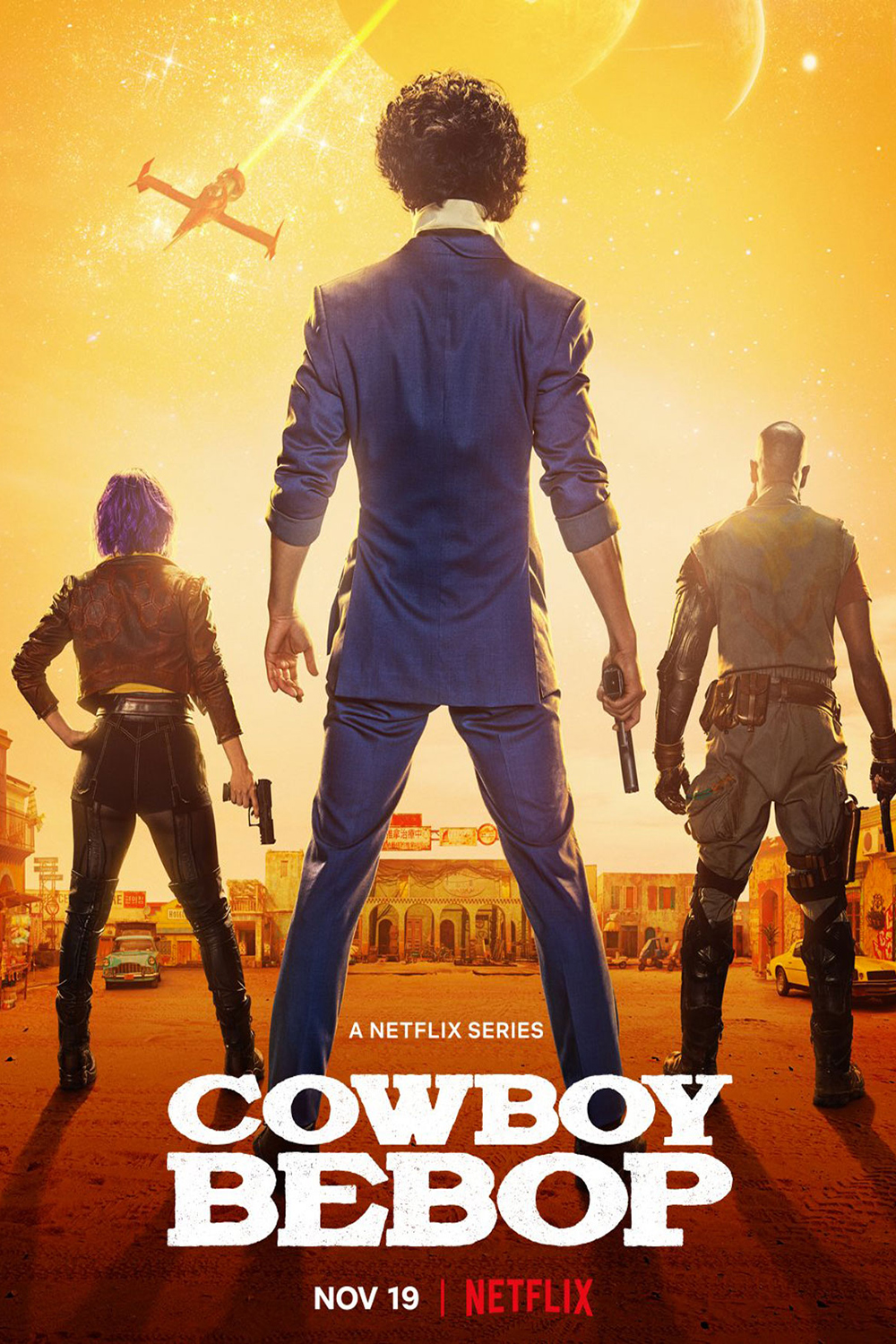Albert Einstein once said he expected World War IV to be fought with “sticks and stones”. It feels lunatic to suggest there could be a fourth world war. Wouldn’t the third blow us all to Kingdom Come?
In defiance of that hesitation, Sean Patrick Hazlett has edited yet another anthology of speculative fiction based on the conceit of a world war, and that is Weird World War IV, published by Baen Books.
Much like the previous anthology, Weird World War III (review here), the stories run the gamut from hard science fiction to pulpier science fiction to open fantasy. Unlike the last book, all of these stories, as far as I can tell, are set in the future; there is none of the alternate history that played with last century’s fears of nuclear conflict between the Soviet Union and the United States. This was mildly disappointing to me as an alternate-history fan, but in any case, it’s a solid science-fiction anthology.
Some of the premises are delightfully odd, including one that reminded me of a zanier take on the basic idea of Cixin Liu’s The Cretaceous Past. They go all over the world and well outside of it, and the tone of the stories can go all over the place.
One may note the presence of two stories that clearly lampoon modern progressive politics. They certainly will not flatter the preconceptions of many liberals, but I found them to be well written and Kafkaesque in their own way.
Liberals will enjoy one story near the end, which takes right-wing populism to task. Baen is stereotyped as a right-wing publishing house, but here — as elsewhere — you can see the political diversity of their writers.
I sense a theme running through the stories, one that is perhaps best described by Martin Luther King Jr:
Our scientific power has outrun our spiritual power. We have guided missiles and misguided men.
(For the gamers: yes, I learned that quote from Civilization V.)
Like much great science fiction, this book raises questions about who has access to what technology and to what ends that technology is used. In some of these stories, there is a philosophical core that makes the heart-thumping action all the more meaningful. Much like the previous anthology, I enjoyed it quite a lot.





